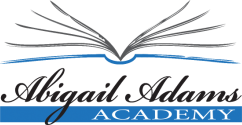In Act 1 the Dancing Master says, "There is nothing, in my opinion, that pays us better for all our fatigue; and it is an exquisite delight to receive the praises of the well-informed."
I find this very applicable today, there are many people who feel that they deserve more for their efforts (and maybe they do) but this Dancing Master seems to spend very little time working or helping Monsieur Jourdain master the art of dancing.
Later he states, "All of the misfortunes of mankind, all the dreadful disasters that fill the history books, the blunders of politicians and the faults of omission of the great commanders, all this comes from not knowing how to dance".
How easy it is to make such a broad declaration without much evidence to support the opinion. That seems to be the way of many experts. As an ex-teacher, I spent so much time discussing or debating different philosophies with other teachers who were never parents yet felt they were experts in how to raise a child or what a child needed to be successful.
A friend of mine once defined an expert like this:
ex - a has been
spert - drip under pressure
His definition makes me laugh. However, there can be a serious problem when we rely on experts and an even bigger problem when we rely on those who think they are experts but are not. Having experts in our society is not a bad thing but it does become a bad thing when we stop thinking for ourselves or discount our thinking solely on the word of another. I love that my mechanic can figure out what is wrong with my car but how do I know I have a good mechanic without out some knowledge myself? Another problem I see is when we hand off responsibility to someone else in the name of being an expert so we don't take the time to figure out what we should do or what the principles should influence us. This play shows what Mr. Jourdain did. He allowed other people to think for him and act for him, instead of figuring out for himself how best to be a true gentleman. Everything in this play was focused on the appearance of what a gentleman should be like and not on becoming a true gentleman.
For me, it was frustrating to hear teachers who were not parents express theories that they had but have never attempted to apply or practice themselves. The teaching license and time in the classroom does not make you an expert on parenting or any particular child. To give advice in this situation is to be a hypocrite.
Another place where there is so much discord is in the bureaucracy of our country. Many of the experts only see the problem based on their expertise and entity. There are so many entities within the bureaucracy, how would you pick an expert? Those individuals will be so focused on protecting their interests that they may not hear another’s opinion. Just like in this play in which each master thought their subject was the most important. Each wants to have the money and recognition for their teaching. Each needs to justify their position and belief of why a gentleman needs to have the skills they can offer. Or a would-be gentleman. Mr. Jourdain will not become a “people of quality” until he determines for himself what that means. Experts do not mean “people of quality”. Poor Mr. Jourdain is so focused on being popular and accepted that he is listening to the wrong voices. How about me? How am I just like Mr. Jourdain?

 RSS Feed
RSS Feed